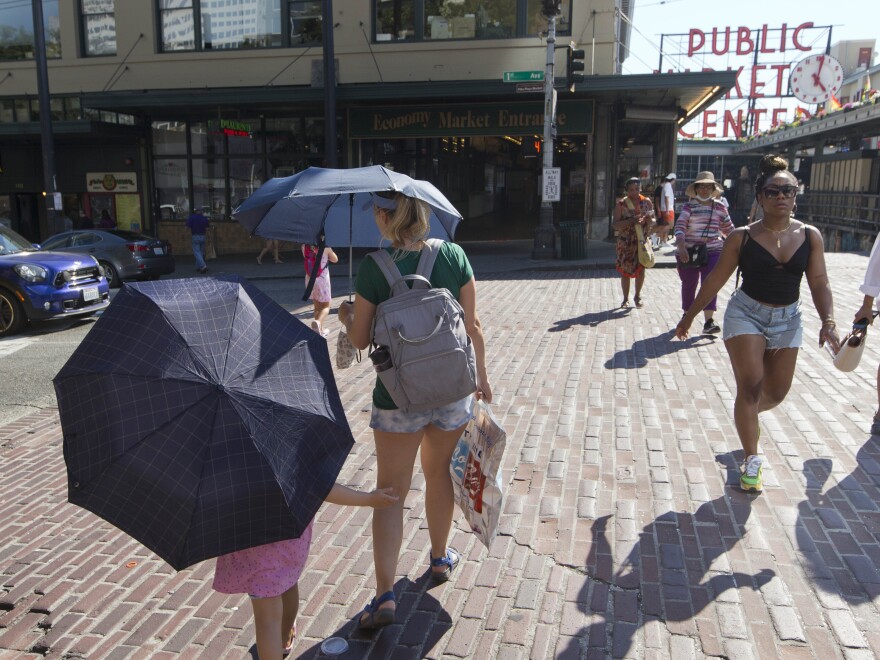Record-breaking temperatures have soared well past 100 degrees across the Pacific Northwest, where the area is trapped beneath a blistering "heat dome."
In a region where average temperatures are closer to the 70s this time of year, houses can be seen with blacked-out windows covered with blankets to help with the heat. The area's normally mild summers mean many households don't have air conditioning.
The historic heatwave is bringing with it fears about what could follow over the rest of this summer.

Records set one day have been broken the next.
Records have been shattered daily in parts of the Northwest, including Portland and Seattle. Portland broke records three days in a row, hitting 108 on Saturday, 112 on Sunday and then 116 on Monday.

In Seattle, the temperature rose to 108 on Monday. In Pasco, Wash., the mercury climbed to 118 degrees, the hottest temperature the state has recorded since 1961.

In some places, the heat is so intense it has even melted power cables. In downtown Portland, the Portland Streetcar service shut down on Sunday, posting a picture on Twitter of a power cable with a hole burnt into it.
In case you're wondering why we're canceling service for the day, here's what the heat is doing to our power cables. pic.twitter.com/EqbKUgCJ3K
— Portland Streetcar (@PDXStreetcar) June 27, 2021
Roads have buckled under the heat in Portland
Pacific Northwest infrastructure is cracking — literally — under the pressure. In Everson, Wash., temperatures have caused the pavement to soften and expand. This can create rutting, buckling, and potholes, particularly in high-traffic areas.
State Route 544 milepost 7 near Everson, Wa is currently closed. The asphalt roadway is buckling and unsafe for travel. WSDOT is advised and detours are currently being set up.
— Trooper Rocky Oliphant (@wspd7pio) June 28, 2021
BL pic.twitter.com/5Yb9UYzbDc
Drought has created a vicious dry cycle
Widespread drought extending from the West and all the way into the Great Plains has only worsened under the heat dome. In the Northwest, a typically wet area, abnormally dry and drought conditions have expanded in a matter of weeks. On June 22, the U.S. Drought Monitor reported 79.8% of the region was in drought just ahead of the fire season.
Scientists say the warming climate is making both heat waves and droughts more frequent and intense

Josie Fischels is an intern on NPR's News Desk.
Copyright 2021 NPR. To see more, visit https://www.npr.org.



